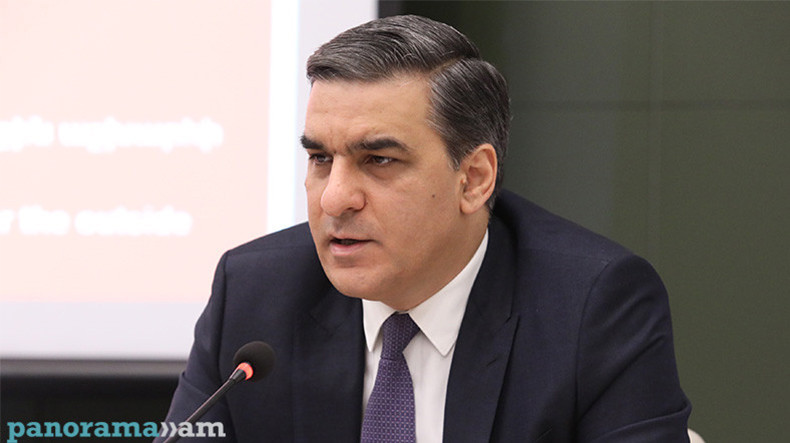
Arman Tatoyan: The mistakes of the past must not be repeated
Armenia's former Human Rights Defender (Ombudsman) Arman Tatoyanon on Saturday addressed the territorial disputes between Armenia and Azerbaijan in the past. His full statement is provided below.
"The mistakes of the past must not be repeated.
During the Soviet era, in border disputes between Armenia and Azerbaijan, it was common for Azerbaijani authorities to take part in official discussions, but, in parallel, to carry out attacks on residents of Armenian villages, seize their land plots and then turn them into the subject of “discussions” (Barana, now Noyemberyan, Kokhb, Koti, Doveg and other villages).
For example, despite the resolution of the Land Disputes Commission of the Central Executive Committee of the Transcaucasian Federation of April 28, 1923, which envisaged the transfer of only 5,000 dessiatines [an archaic land measurement] of land in the Shinikh-Ayrum region to the Gazakh district, the Gazakh land construction group drew up a completely different plan, ignoring the decision.
They illegally seized more lands from the territory of the Armenian SSR than envisaged by the decision. In particular, by intimidating a local forester, they seized an area of about 7,000 dessiatinas, increasing their "achievement" to 11,800 dessiatinas and making it the subject of discussion.
Let me bring another example: the disputes over the Tavush, Karvansaray (Ijevan) and Ghazakh border areas, which began in May 1922, and the final work of the commissions dealing with them were constantly dragged out because the Azerbaijanis had seized most of the lands owned by the Armenians, but fallen into their territory and refused to return them. This, in turn, made it difficult for the villagers to use their pastures, forests and water resources.
In general, disputes often arose because of big Azerbaijani landowners who sold their lands to the Armenians and then unreasonably demanded them back. Whereas, Azerbaijan’s violations were not properly recorded by the authorities of Soviet Armenia, who relied on discussions and Azerbaijani "lulling” and tried to avoid "unnecessary trouble”.
Thus, they were only making a gift to the Azerbaijani authorities to show the world that they were peaceful and humane at the expense of our homeland and compatriots.”
Newsfeed
Videos






























